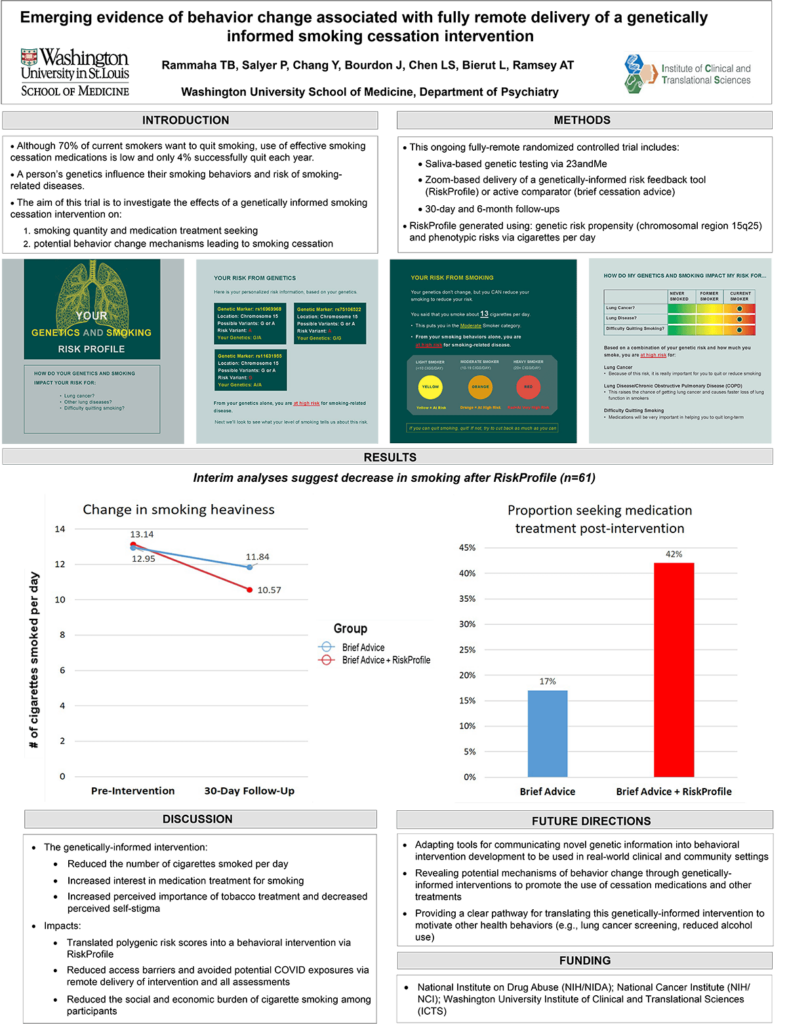Introduction: Genetic variation in nicotinic receptor subunits explains differences in smoking behaviors and risk of smoking-related diseases. Still, it remains unknown whether returning genetic susceptibility results can motivate smoking cessation and personalize treatment. Therefore, the aim of this trial is to investigate the effects of a genetically informed smoking cessation intervention on a) smoking quantity and medication treatment seeking and b) potential behavior change mechanisms leading to smoking cessation.
Methods: To date, we have enrolled 81 adult participants who smoke in a fully remote randomized controlled trial including genetic testing via 23andMe, Zoom-based delivery of a genetically informed risk feedback tool (RiskProfile) or active comparator (brief cessation advice), and 30-day and 6-month follow-ups. Each personalized RiskProfile is generated using two components: genetic risk propensity and phenotypic risks via cigarettes per day (CPD).
Results: As hypothesized, interim analyses (n=61 with completed 30-day follow-up) using repeated-measures ANOVA controlling for baseline CPD yield promising effect size estimations (partial eta-squared=.032, small-to-medium effect size). This indicates clinically meaningful behavior change characterized by reductions in CPD of 2.6 in the RiskProfile intervention group versus 1.1 in the active comparator group. Importantly, 42% in the intervention group versus 17% in the comparator group sought medication treatment for smoking. Increases in perceived importance of tobacco treatment and decreases in perceived self-stigma appear to be particularly promising mechanisms of behavior change.
Impact: Through this ongoing fully remote trial, we have significantly advanced the following clinical, community, and economic benefits: 1) translated polygenic risk scores into a behavioral intervention via RiskProfile (biological factors and products), 2) reduced access barriers via remote delivery (accessibility/delivery), 3) protected the health and safety of participants and research staff by avoiding COVID exposures (disease prevention/reduction), and 4) reduced the social and economic burden of cigarette smoking among participants (cost of illness).
Organization – Washington University in St. Louis
Rammaha TB, Salyer P, Chang Y, Bourdon J, Chen LS, Bierut L, Ramsey AT
